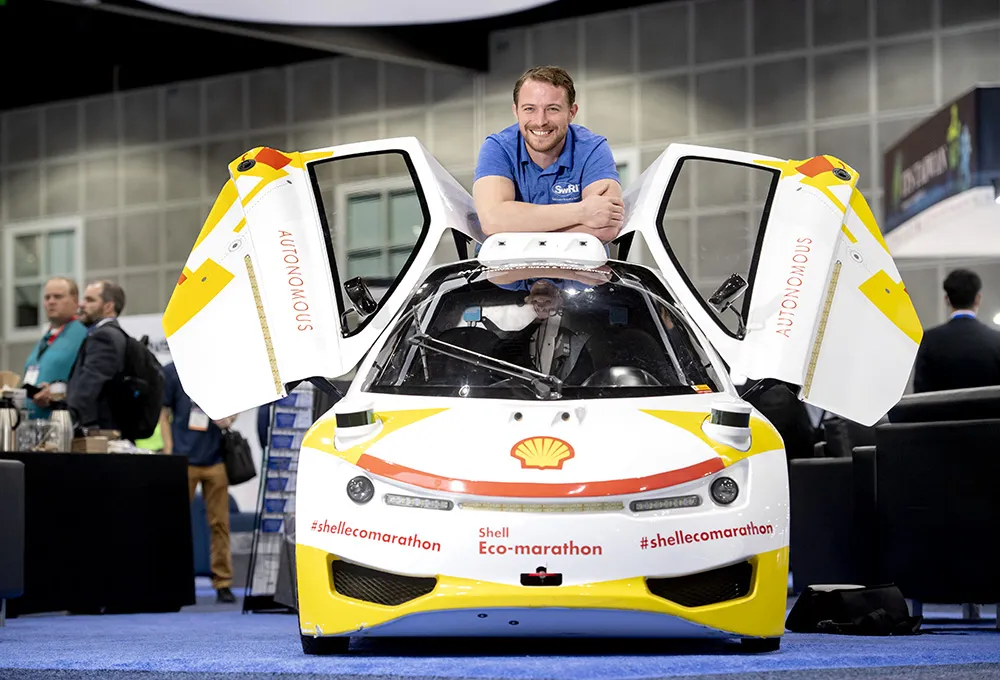Dutch companies Benteler Engineering Services and transit systems developer 2getthere have teamed up to work on the engineering of the third generation Group Rapid Transit (GRT) people mover vehicle, which will feature all-wheel steering, allowing for even better control of the vehicle and shorter radii in addition to being able to ‘crab’, or drive sideways, at stations.
With the system being capable of carrying 5,000 passengers per hour per direction, the companies claim it is an affordable alternative
July 29, 2015
Read time: 2 mins
Dutch companies 8171 Benteler Engineering Services and transit systems developer 8172 2getthere have teamed up to work on the engineering of the third generation Group Rapid Transit (GRT) people mover vehicle, which will feature all-wheel steering, allowing for even better control of the vehicle and shorter radii in addition to being able to ‘crab’, or drive sideways, at stations.
With the system being capable of carrying 5,000 passengers per hour per direction, the companies claim it is an affordable alternative to the heavier automated people mover systems. Along with the bi-directional capability of the GRT vehicle, 2getthere has introduced doors on both sides of the vehicle and the ability to operate at a higher maximum speed. Benteler Engineering Services will be responsible for the engineering of both the chassis and the body of the GRT vehicle, with the IP being owned by 2getthere.
Carel van Helsdingen, CEO of 2getthere, comments: “With the market for automated systems seeing a rapid growth in the number of interested projects, we were looking for a partner that brings automotive knowledge, German workmanship and Dutch entrepreneurship to the table. We believe the combination of these qualities is represented in Benteler Engineering Services.”
With the system being capable of carrying 5,000 passengers per hour per direction, the companies claim it is an affordable alternative to the heavier automated people mover systems. Along with the bi-directional capability of the GRT vehicle, 2getthere has introduced doors on both sides of the vehicle and the ability to operate at a higher maximum speed. Benteler Engineering Services will be responsible for the engineering of both the chassis and the body of the GRT vehicle, with the IP being owned by 2getthere.
Carel van Helsdingen, CEO of 2getthere, comments: “With the market for automated systems seeing a rapid growth in the number of interested projects, we were looking for a partner that brings automotive knowledge, German workmanship and Dutch entrepreneurship to the table. We believe the combination of these qualities is represented in Benteler Engineering Services.”









